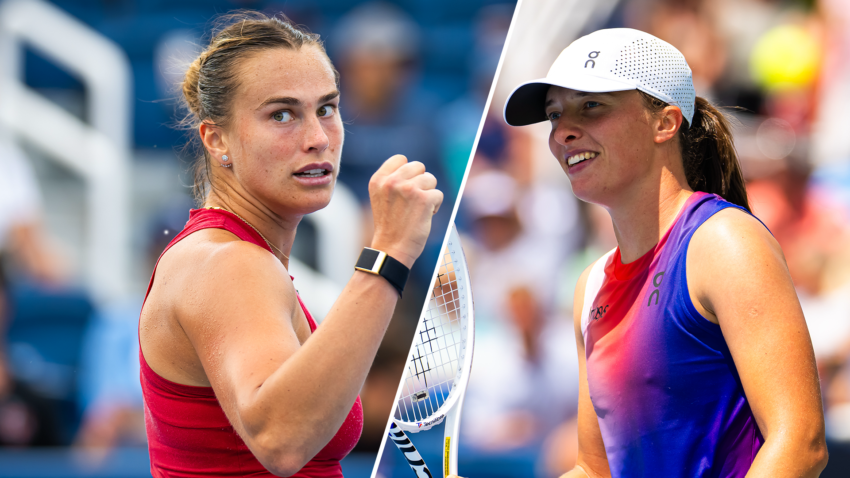
Two weeks after tennis concluded at the Olympics, that momentous quadrennial event still seems to be disrupting the normal workings of the tours and their players. You might have thought that everything would be back to normal by now, but the Cincinnati Open has been an unpredictable, and carnage-heavy, tournament so far. It began with the men’s gold medalist and defending champion, Novak Djokovic, pulling out, and continued as last year’s women’s champion, Coco Gauff, and its men’s runner-up, Carlos Alcaraz, both looked out of sorts, and not quite ready for the fast hard courts and windy conditions here, as they lost their opening-round matches.
The top seed on the women’s side, Iga Swiatek, seemed destined for a similar fate on a couple of occasions. She lost a set to 69th-ranked Varvara Gracheva in her first match, and was forced to the brink by 17-year-old Mirra Andreeva in her quarterfinal on Saturday. But unlike Alcaraz and Gauff, Swiatek didn’t cave to her surroundings or her opponents. Her win over Andreeva felt like it came over an opponent who is well on her way to being a challenger for her No. 1 ranking.
Now Swiatek, and Cincy, will get a true marquee matchup, when she takes on Aryna Sabalenka in the semifinals on Sunday.
Swiatek and Sabalenka don’t have any secrets from each other at this point. They’ve faced off 11 times in less than three years, including twice already this season in important finals in Madrid and Rome; Swiatek leads 8-3. But in 2023 and 2024, their rivalry has mostly been limited to one surface, clay, and one time of year, spring. Six of their last nine meetings have come on dirt. Which makes this a good opportunity for fans to see them in the States, on hard courts, leading into a Slam other than Roland Garros. It also feels like a bit of a bonus. Sabalenka was coming off an injury she suffered ahead of Wimbledon and hadn’t won much lately, while Swiatek was moving from red clay to hard courts, and looking mainly to get adjusted to them before the US Open.
“It’s always high intensity matches,” Sabalenka says. “We had a lot of great battles in the past, and I’m really looking forward for another great battle against her.”
“We’re both, you know, players that kind of deserve to be in the semifinals, finals,” Swiatek says, “because we’re working really hard, and I respect Aryna, like, so much.”
Swiatek, as mentioned, has dropped two sets so far in Cincy, while Sabalenka comes with a clean sheet. That may have something to do with the fact that Sabalenka, who skipped the Olympics, already had two hard-court events under her belt before coming here, while Swiatek is just joining the North American swing. Sabalenka’s game, theoretically, should also be a better fit for the speedy surface. She has a big-swinging, first-strike style, while Swiatek is a clay-lover who can be rushed on her forehand side.
“It is super fast,” Swiatek says of the courts. “So it’s not easy to sometimes put the ball in. You know, I think we play with, like, more mistakes, and we have to adjust to that and kind of accept it.”
Sabalenka, for her part, says she’s happy that she’s been able to get used to these “tricky conditions,” but doesn’t think the court will determine the outcome.
“I wouldn’t say that going against world No. 1, surface can really help you to get the win,” she says. “Of course, maybe there is going to be little benefits. But against a player like Iga, I feel like I have to focus on myself, on my game, not expecting the surface to kind of, like, bring me some benefits and help me to win this match.”
